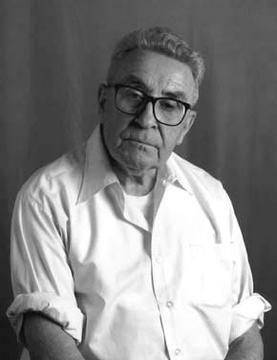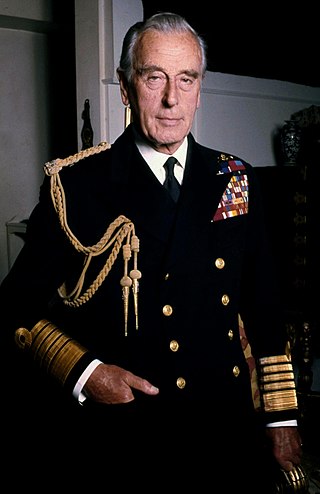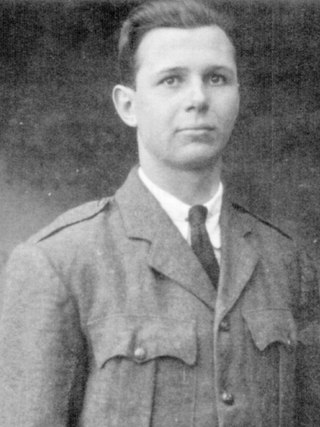
The Provisional Irish Republican Army, officially known as the Irish Republican Army and informally known as the Provos, was an Irish republican paramilitary force that sought to end British rule in Northern Ireland, facilitate Irish reunification and bring about an independent republic encompassing all of Ireland. It was the most active republican paramilitary group during the Troubles. It argued that the all-island Irish Republic continued to exist, and it saw itself as that state's army, the sole legitimate successor to the original IRA from the Irish War of Independence. It was designated a terrorist organisation in the United Kingdom and an unlawful organisation in the Republic of Ireland, both of whose authority it rejected.

The Troubles were an ethno-nationalist conflict in Northern Ireland that lasted for about 30 years from the late 1960s to 1998. Also known internationally as the Northern Ireland conflict, it began in the late 1960s and is usually deemed to have ended with the Good Friday Agreement of 1998. Although the Troubles mostly took place in Northern Ireland, at times violence spilled over into parts of the Republic of Ireland, England, and mainland Europe.

Fundraising or fund-raising is the process of seeking and gathering voluntary financial contributions by engaging individuals, businesses, charitable foundations, or governmental agencies. Although fundraising typically refers to efforts to gather money for non-profit organizations, it is sometimes used to refer to the identification and solicitation of investors or other sources of capital for for-profit enterprises.
Matching funds are funds that are set to be paid in proportion to funds available from other sources. Matching fund payments usually arise in situations of charity or public good. The terms cost sharing, in-kind, and matching can be used interchangeably but refer to different types of donations.

The Friends of Sinn Féin is the name of six different Irish republican political non-profit organisations located in Scotland, England, Wales, Canada, Australia and the United States. Friends of Sinn Féin USA, located in New York City, is the largest and most successful.

NORAID, officially the Irish Northern Aid Committee, is an Irish American membership organization founded after the start of the Troubles in Northern Ireland in 1969. The organization states its mission is to aid in the creation of a United Ireland in the spirit of the 1916 Easter Proclamation and to support the Northern Ireland Peace process. During the Troubles, NORAID was known for raising funds for the Provisional Irish Republican Army and Nationalist relief groups such as Green Cross and An Cumann Cabrach.
Terrorism financing is the provision of funds or providing financial support to individual terrorists or non-state actors.
Martin J. Galvin is an Irish American lawyer, publisher and activist, and former director of NORAID.
The American Ireland Fund, is a tax-exempt organization incorporated under the laws of the United States and has been determined by the IRS to be a public charity under section 501(c)(3) of the Internal Revenue Code, tax ID # is 25-1306992. The organization raises funds for the support of peace and reconciliation, community development, education, and arts and culture in Ireland. Collectively with The Ireland Funds’ 12 worldwide chapters, it has raised more than $550 million (US), benefiting more than 3,000 Irish charities.

George Harrison was a primary gun runner for the Irish Republican Army and Provisional Irish Republican Army from the 1950s until 1981.

Trick-or-Treat for UNICEF is a fund-raising program for children sponsored by the U.S. Fund for UNICEF. Started on Halloween 1950 as a local event in Philadelphia, Pennsylvania, United States, the program historically involves the distribution of small orange boxes by schools to trick-or-treaters, in which they can solicit small change donations from the houses they visit. Millions of children in the United States, Canada, Ireland, Mexico, and Hong Kong participate in Halloween-related fund-raising events for Trick-or-Treat for UNICEF, and the program has raised over US$188 million worldwide.
The Jerusalem Foundation is a nonprofit foundation that promotes the development of the city of Jerusalem, by raising funds for social, cultural and beautification projects. Established in 1966 by West Jerusalem mayor Teddy Kollek, it has contributed hundreds of millions of dollars to the city's budget and established parks, gardens, forests, recreational sites, theaters, and museums; restored ancient sites, synagogues, mosques, and churches; funded community and social centers, preschool centers, and health clinics; and sponsored archeological excavations, scholarships, and cultural events. The Jerusalem Foundation is unique in its structure and mission, as it funds municipal projects with private donations from international sources.

CrowdRise is a for-profit crowdfunding platform that raises charitable donations. CrowdRise was founded by Edward Norton, Shauna Robertson, and the founders of Moosejaw, Robert and Jeffrey Wolfe. CrowdRise was acquired in 2017 by GoFundMe.

GoFundMe is an American for-profit crowdfunding platform that allows people to raise money for events ranging from life events such as celebrations and graduations to challenging circumstances like accidents and illnesses. From 2010 to the beginning of 2020, over $9 billion has been raised on the platform, with contributions from over 120 million donors.

FundRazr is a free crowdfunding and online fundraising platform released in 2009. FundRazr operates internationally in 35+ countries with the largest markets being United States, Canada, United Kingdom and Australia. It allows users to run a wide-range of crowdfunding campaigns by creating fundraising pages and sharing it via social media, messaging apps, email and more to raise money for over 100 types of causes such as nonprofit, medical care, education, community help, poverty alleviation, arts, memorials, and animal rescue causes. FundRazr also works with more than 4000 nonprofits, charities and social enterprises with an advanced fundraising toolset for free. The digital fundraising platform provides 8 different campaign types. They include microproject fundraising, peer-to-peer campaigns, wishlist campaigns, recurring donations, branded sponsorship campaigns, DIY projects, sweepstake campaigns, and storefront campaigns.
Rally.org is an American social online fundraising platform for use by a wide range of individuals and organizations. It allows users to set up their own fundraising page, through which supporters can find information about their campaigns and make donations through Rally.org's proprietary payment system. The platform is best known for its use by causes including the Make A Wish Foundation and Jon Bon Jovi's Hurricane Sandy relief effort, filmmakers including the director of Buzkashi Boys, and political campaigns in the United States 2012 election cycle. In May 2012, Rally.org closed the largest Series A round of venture capital ever raised online. The company was founded in Austin, Texas, as Piryx, in 2009 by Tom Serres, Brian Upton, Jonas Lamis and Naveed Lalani.

Louis Mountbatten, 1st Earl Mountbatten of Burma, a relative of the British royal family, was assassinated on 27 August 1979 by Thomas McMahon, an Irish republican and a volunteer for the Provisional Irish Republican Army (IRA).

The Hillary Victory Fund was a joint fundraising committee for Hillary for America, the Democratic National Committee (DNC), and 33 state Democratic committees. As of May 2016, the Fund had raised $61 million in donations.

Michael Flannery was an Irish republican who fought in the Irish War of Independence and the Irish Civil War. He supported the Provisional IRA during The Troubles and was a founder of NORAID and Cumann na Saoirse after Republican Sinn Féin and Provisional Sinn Féin split in 1986.
In order to finance their armed campaigns during the Troubles (1969–1998), both Irish republican and Ulster loyalist paramilitaries engaged in numerous fundraising activities within Ireland and the United Kingdom, such as bank robbery, extortion, drug trafficking, bootleg recording, racketeering, and legitimate businesses such as social clubs, taxi companies, and retail shops. They also received finances from overseas, with the Republican paramilitaries being given the most support.












